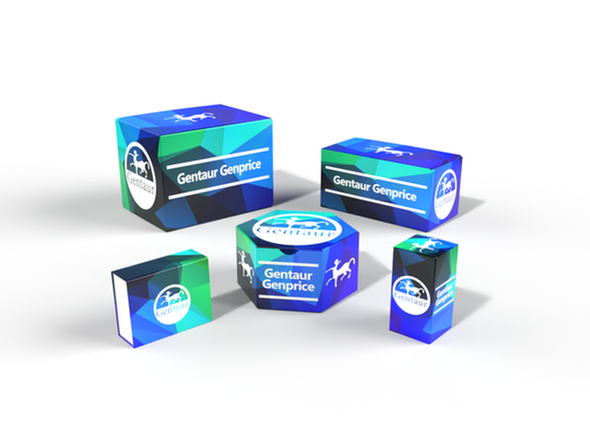Description
ADAP Antibody | 4279 | Gentaur UK, US & Europe Distribution
Host: Rabbit
Reactivity: Human
Homology: N/A
Immunogen: ADAP antibody was raised against a 17 amino acid synthetic peptide from near the amino terminus of human ADAP.
The immunogen is located within amino acids 60 - 110 of ADAP.
Research Area: Immunology
Tested Application: E, WB, ICC, IF
Application: ADAP antibody can be used for detection of ADAP by Western blot at 0.5 - 1 μg/mL. Antibody can also be used for immunocytochemistry starting at 10 μg/mL. For immunofluorescence start at 20 μg/mL.
Antibody validated: Western Blot in human samples; Immunocytochemistry in human samples and Immunofluorescence in human samples. All other applications and species not yet tested.
Specificiy: N/A
Positive Control 1: Cat. No. 1204 - K562 Cell Lysate
Positive Control 2: Cat. No. 17-004 - K-562 Cell Slide
Positive Control 3: N/A
Positive Control 4: N/A
Positive Control 5: N/A
Positive Control 6: N/A
Molecular Weight: N/A
Validation: N/A
Isoform: N/A
Purification: ADAP Antibody is affinity chromatography purified via peptide column.
Clonality: Polyclonal
Clone: N/A
Isotype: IgG
Conjugate: Unconjugated
Physical State: Liquid
Buffer: ADAP Antibody is supplied in PBS containing 0.02% sodium azide.
Concentration: 1 mg/mL
Storage Condition: ADAP antibody can be stored at 4˚C for three months and -20˚C, stable for up to one year. As with all antibodies care should be taken to avoid repeated freeze thaw cycles. Antibodies should not be exposed to prolonged high temperatures.
Alternate Name: ADAP Antibody: ADAP, PRO0823, SLAP-130, SLAP130, FYN-binding protein, Adhesion and degranulation promoting adaptor protein, ADAP
User Note: Optimal dilutions for each application to be determined by the researcher.
BACKGROUND: ADAP Antibody: The adhesion and degranulation adaptor protein (ADAP) was initially identified as a molecular adapter that couples T cell receptor (TCR) stimulation to the avidity of integrins governing T cell adhesion. TCR stimulation promotes the formation of a multi-protein complex containing CARMA1, MALT1, and BCL-10, which through the association of ADAP, ultimately activates the NF-κB family of transcription factors. More recent experiments have shown that ADAP controls optimal T cell proliferation, cytokine production, and expression of the Bcl-2 family member Bcl-x (L) , suggesting that ADAP regulates T cell activation by promoting antigen-dependent T cell-antigen presenting cell (APC) activation. At least three isoforms of ADAP are known to exist.






